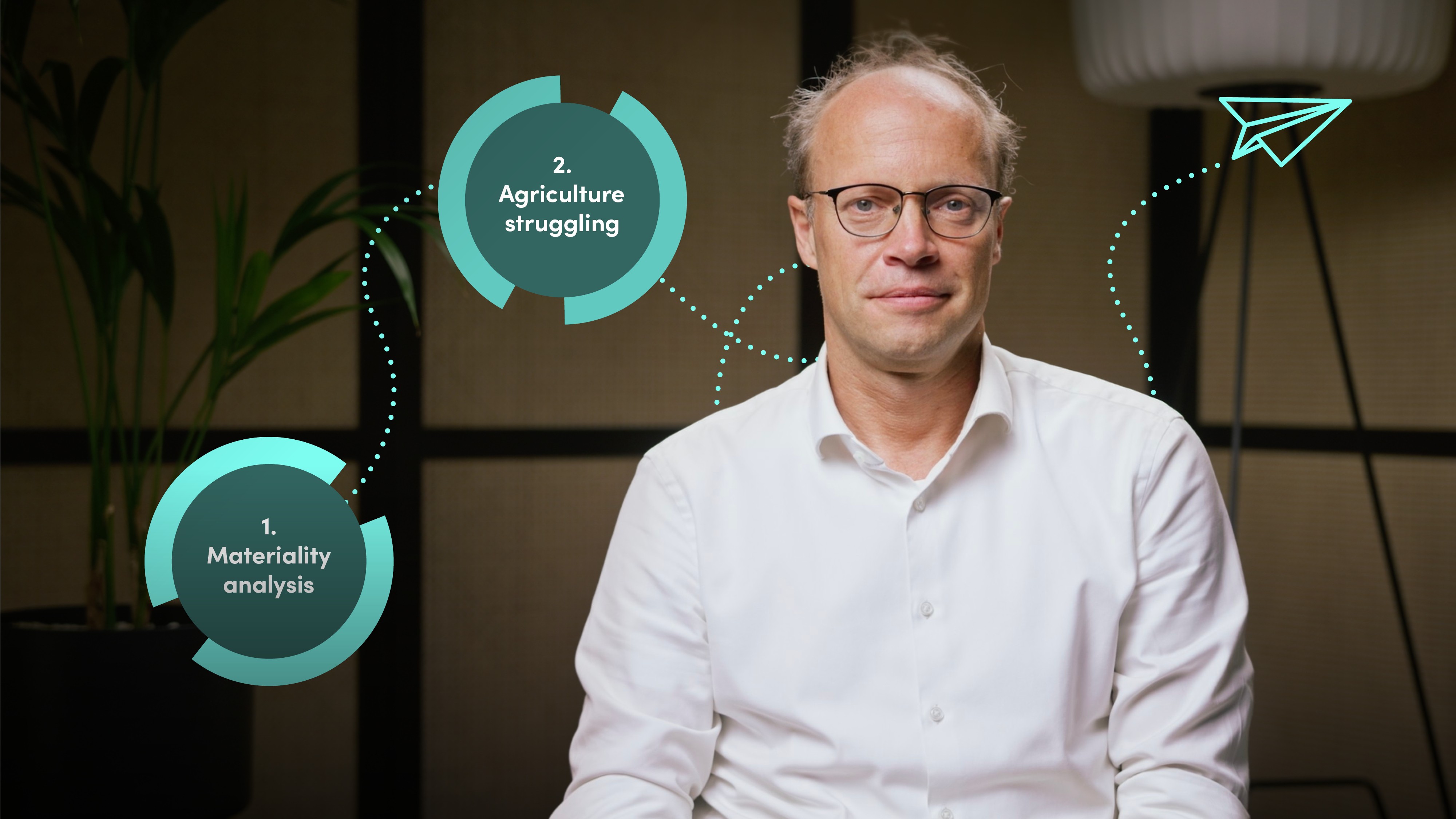
Integrating Sustainability Within Bayer

Klaus Kunz
20 years: Head of ESG Strategy
Sustainably transforming your company can seem like a daunting, or even impossible, task. Join Klaus Kunz as he walks you through how he developed a sustainable business strategy.
Sustainably transforming your company can seem like a daunting, or even impossible, task. Join Klaus Kunz as he walks you through how he developed a sustainable business strategy.

Integrating Sustainability Within Bayer
7 mins 4 secs
Key learning objectives:
Identify the cultural differences in perceptions of regulation
Outline the questions asked to create a sustainability strategy
Understand how a sustainability strategy was implemented
Overview:
Creating a sustainability strategy at Bayer involved stepping back and asking 3 fundamental questions: what’s wrong in the agricultural system, what needs to change and what is their role? From this the 30-30-100 for 2030 strategy was created to reduce the environmental impact of pesticides by 30%, reduce the greenhouse gas emissions of farmer customers by 30% and help support the 100 million smallholder farmers.

Klaus Kunz
There are no available Videos from "Klaus Kunz"

